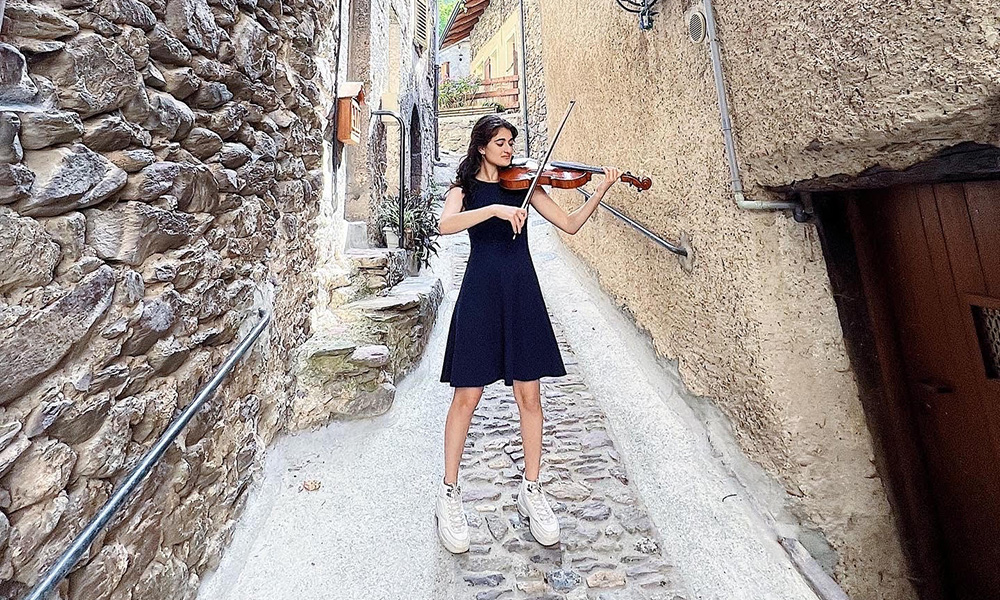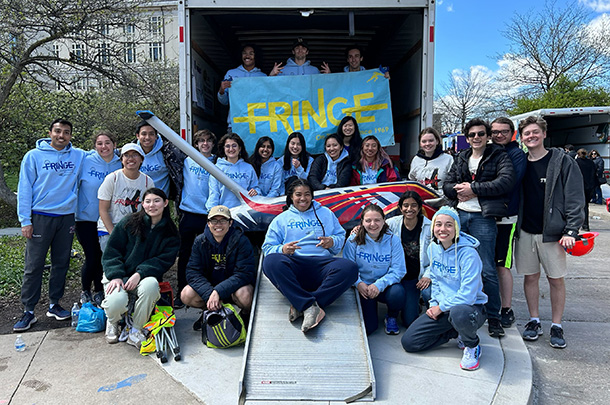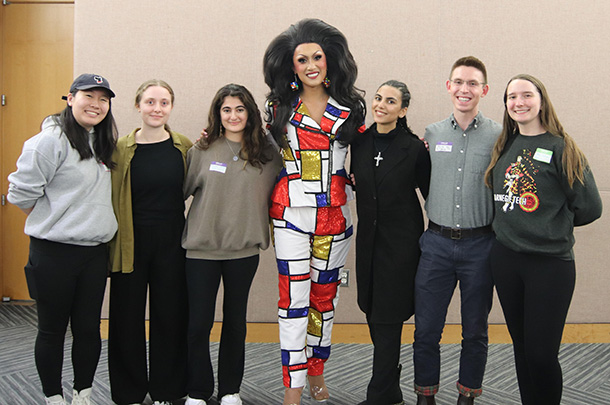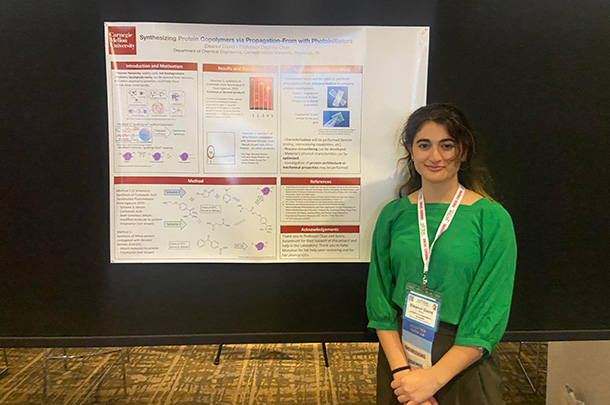Student spotlight: Eleanor David
Lauren Smith
Jun 20, 2024

Source: Eleanor David
Eleanor David almost attended conservatory instead of engineering school. With Carnegie Mellon’s Engineering and Arts additional major, she didn’t have to choose one over the other. David is studying both chemical engineering and viola performance.
In addition to all she’s learned from her viola professor, David Harding, David credits her musicianship to eurhythmics courses in the Dalcroze style at the School of Music. Dalcroze Eurhythmics, which is not offered at many music schools, is a process for awakening, developing, and refining innate musicality through rhythmic movement, ear-training, and improvisation.
David is also attuned to the rhythmic rolling of buggy wheels. This year, she was head mechanic for Fringe buggy, and next year she will be president.
When she joined Fringe as a first-year student, David says she had “a lot of theoretical knowledge but not a lot of practical, hands-on engineering work.” She really wanted to get involved with building the buggy, and the head mechanic that year became her mentor on the team. “They took me from having never used a power tool to being the head mechanic my junior year,” she says. “This year, I tried to do that for other people.”

Source: Eleanor David
Eleanor David (third row, fifth from left) and the Fringe team with their 2024 buggy, Blackbird
Fringe builds a new buggy every year, iterating on the design. Part of the head mechanic’s role is to identify a problem from the past to fix. David focused on process engineering design this year. “I wanted to make sure that anytime we had a build, we had all the parts and processes down,” she says. David also wants to keep knowledge flowing from year to year, a process that was disrupted during the COVID-19 pandemic.
On race day, Fringe debuted their newest buggy, Blackbird, and had four other buggies rolling. Leading up to Spring Carnival, David kept safety a priority while troubleshooting for both the old and new buggies during rolls. She’s proud that they were the safest team on the course, with no mechanical failures or crashes the entire year, including during the races.
David has also been instrumental in increasing momentum of the CMU chapter of Out in Science, Technology, Engineering, and Mathematics (oSTEM). She has been out since high school and was looking for an open and progressive community in college. The oSTEM @ CMU chapter, however, wasn’t active after the COVID-19 pandemic. As part of her role on the College of Engineering Diversity, Equity, and Inclusion (DEI) Student Advisory Committee, David has revitalized it. The club, which offers students a mix of professional and social activities, is gaining membership under David’s leadership as president.

Source: Eleanor David
Eleanor David and the oSTEM @ CMU executive board brought drag queen, mathematics communicator, and author Kyne Santos to speak on campus
Last fall, David organized CMU’s attendance at the oSTEM national conference. In addition to connecting with potential employers, David presented her research poster.
In Daphne Chan’s lab, David is trying to create a microphase-separated compound by initiating polymerization reactions with UV light. Combining proteins and polymers changes the material properties of the resulting polymer, or plastic.
“As we move toward more sustainable alternatives, finding ways to incorporate more decomposable materials into plastics as they’re manufactured is increasingly important,” she says. “For example, these proteins might help the plastic break down more easily in the environment.”
The scope of David’s project includes making the photoinitiator, attaching it to the protein, polymerizing from the protein, and finally, doing mechanical testing. Currently, her work falls in between the second and third steps. “There’s been a lot of trial and error to find the right reaction conditions to make the reaction work well,” she says.

Source: Eleanor David
Eleanor David at the 2023 oSTEM national conference
David’s research in the Chan Group allows her to work with polymers in a deeper way than is covered in her undergraduate courses. She is also finding opportunities to apply her studies across industries.
This summer, David is interning at Kairos Power, a nuclear energy start-up. She is on the salt chemistry team, doing analytical chemistry work to support their development of a molten salt nuclear reactor. The experience is helping her evaluate whether to pursue a master’s degree in nuclear engineering or a job in industry after graduation.
